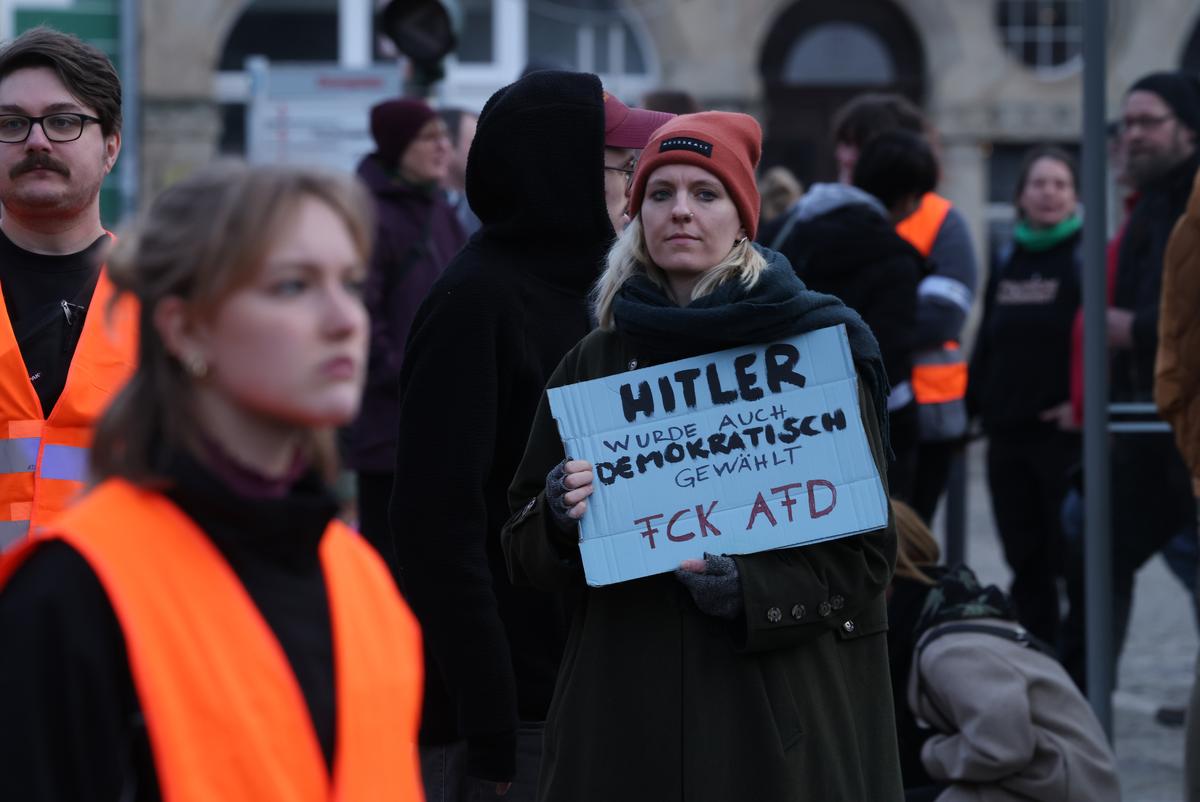[ad_1]
AfD supporters hold placards of faction co-chairwoman and top candidate for the federal election Alice Weidel as they gather in Hohenschoenhausen district for a rally of the local chapter of the far-right Alternative for Germany (AfD) the day before national elections on February 22, 2025 in Berlin, Germany.
| Photo Credit: Getty Images
German voters are choosing a new government in an election on Sunday (February 23, 2025) dominated by worries about the years-long stagnation of Europe’s biggest economy, pressure to curb migration and growing uncertainty over the future of Ukraine and Europe’s alliance with the United States. The center-right opposition is favored to win, while polls point to the strongest result for a far-right party since World War II.
Germany is the most populous country in the 27-nation European Union and a leading member of NATO. It has been Ukraine’s biggest second-weapons supplier, after the U.S. It will be central to shaping the continent’s response to the challenges of the coming years, including the Trump administration’s confrontational foreign and trade policy.
Germany’s electoral system
More than 59 million people in the nation of 84 million are eligible to elect the 630 members of the lower house of parliament, the Bundestag, who will take their seats under the glass dome of Berlin’s landmark Reichstag building.

People protesting against a nearby rally of the far-right Alternative for Germany (AfD), including one woman with a placard that reads: “Hitler was also democratically elected, FCK AFD”, march before German elections on February 22, 2025 in Erfurt, Germany.
| Photo Credit:
Getty Images
Germany’s electoral system rarely produces absolute majorities, and no party looks anywhere near one this time. It’s expected that two or more parties will form a coalition, following potentially difficult negotiations that will take weeks or even months before the Bundestag elects the next chancellor.
This election is taking place seven months before it was originally planned after center-left Chancellor Olaf Scholz’s coalition collapsed in November, three years into a term that was increasingly marred by infighting. There’s widespread discontent and not much enthusiasm for any of the candidates.
Far-right Alternative for Germany, or AfD running in second place
Center-right opposition leader Friedrich Merz’s Union bloc has consistently led polls, with 28-32% support in the most recent surveys, and Merz is favored to replace Scholz. Scholz’s Social Democrats have been polling between 14-16%, which would be their worst postwar result in a national parliamentary election.

The far-right, anti-immigration Alternative for Germany, or AfD, has been running in second place with around 20% of the vote — well above its previous best of 12.6% in a national election, from 2017 — and has fielded its first candidate for chancellor in Alice Weidel. But other parties say they won’t work with it, a stance often known as the “firewall.”
The environmentalist Greens also are running for the top job, with outgoing Vice Chancellor Robert Habeck, but have been polling a little behind Scholz’s party.
Collapase of Scholz’s three-party coalition
Merz has pledged “stability instead of chaos” after Scholz’s three-party coalition collapsed following long-running internal arguments, including over how to revitalize the economy.
But it’s unclear whether the conservative leader, if he wins, will be able to put together a stable government that does much better. Merz hopes for a two-party coalition, but may end up needing a third partner to form a government.
The realistic candidates to join a Merz government are Scholz’s Social Democrats, the Greens and the pro-business Free Democrats — who were the smallest partner in Scholz’s collapsed government and may not manage to stay in parliament.
The Free Democrats and another small party are hovering are hovering at around 5% of the vote, the threshold to qualify for seats in parliament. If they do, there may be no majority for a two-party coalition.
The contenders have made contrasting proposals to turn around the German economy, which has shrunk for the past two years and hasn’t managed real growth in much longer. That’s going to be a central job for the new government.
Migration moved to the forefront of the campaign in the past month following deadly attacks committed by immigrants.
Merz vowed to bar people from entering the country without proper papers and to step up deportations if he is elected chancellor. He then brought a nonbinding motion calling for many more migrants to be turned back at Germany’s borders. Parliament approved it by a narrow majority thanks to AfD votes — a first in postwar Germany.
Rivals made Merz’s attitude toward AfD, which generated protests, an issue. Scholz accused Merz of “irresponsible gambling” and breaking a taboo. Merz has rejected those accusations, saying that he didn’t and won’t work with AfD. He has repeatedly and categorically said since that his party will “never” do so.
Mainstream parties have vowed to keep up support for Ukraine in its war against Russia. And after the Scholz government reached a NATO target of spending 2% of gross domestic product on defense, the next administration will have to find a way to keep that going — and likely expand it, in the face of U.S. demands — once a special 100 billion-euro ($105 billion) fund to modernize the military is used up in 2027.
[ad_2]
Discontented Germany votes in an election with economy, migration and far-right strength in focus






